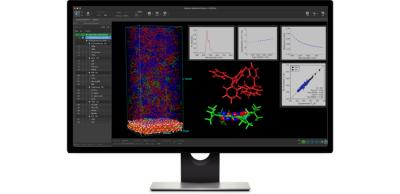August 7th, 2024 10:00 AM PT / 1:00 PM ET / 6:00 PM BST / 7:00 PM CEST
The rapid evolution of display technology requires the use of cutting-edge research methods to maintain progress. Industry innovators such as Panasonic, Samyang, and Samsung are adopting Schrödinger’s digital chemistry platform to drive innovation in their organic electronics R&D.
This webinar, “Leveraging atomistic simulation, machine learning, and cloud-based collaborative ideation for display materials discovery” will explore the union of physics-based simulations, machine learning (ML), and cloud-native collaboration and informatics tools in revolutionizing R&D innovation for display materials.
We will delve into how physics-based simulations provide a robust foundation for understanding and predicting material behaviors, while ML modeling accelerates the discovery and optimization of new materials through data-driven insights. Furthermore, we will introduce Schrödinger’s LiveDesign, a cutting-edge web-based collaboration platform, designed to facilitate R&D in a modern, digital working environment. LiveDesign supports comprehensive functionalities, including modeling, data processing, data storage, and collaborative ideation, empowering teams to work seamlessly across diverse geographical locations.
Join us to gain a deeper understanding of:
- The principles and benefits of combining physics-based simulation and machine learning models
- Strategies for seamless integration of computational approaches in your R&D workflow
- Real-world examples illustrating the application and impact of integrated models in developing superior display materials
- How to leverage LiveDesign for collaborative ideation, advanced modeling, and project management
Register NOW! You will receive a link of the recording after the webinar.
Speaker:
Hadi Abroshan, Principal Scientist, Schrödinger
Hadi Abroshan is the Product Manager for Organic Electronics at Schrödinger, Inc. He holds a Ph.D. from Carnegie Mellon University and has conducted research at Stanford University and Georgia Tech. Hadi specializes in multiscale simulations, leading projects to design cost-effective multifunctional materials for optoelectronics. His expertise lies in developing computational strategies that bridge atomistic structures to multilayered device scales, using a blend of physics-based methodologies and machine learning techniques. His work has led to the discovery of novel, environmentally friendly materials and processes with superior efficiencies.

